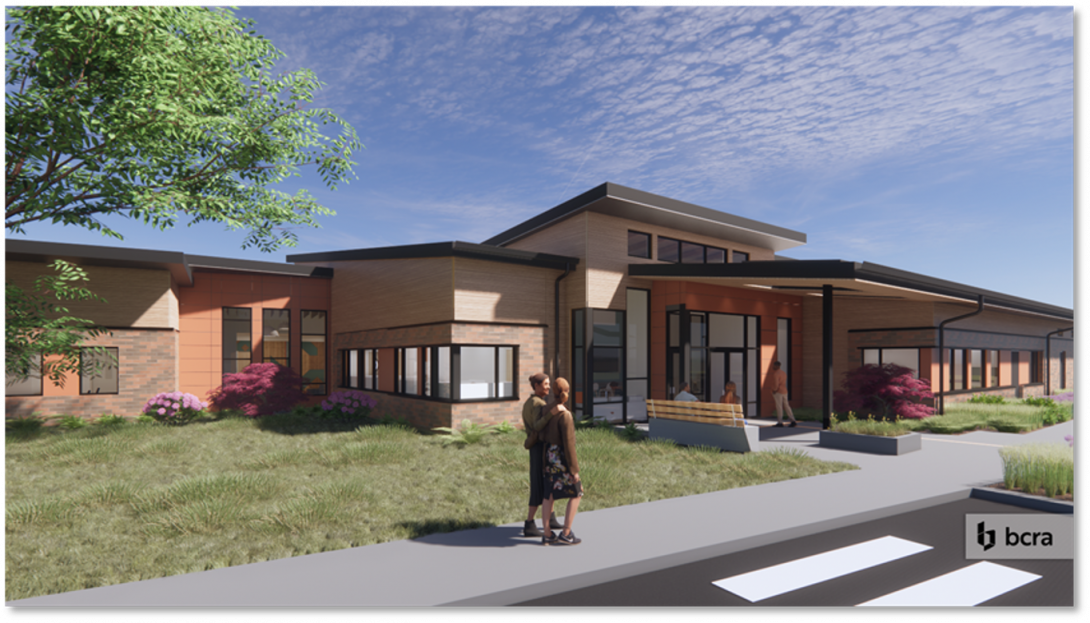
Washington officials want to fill more beds at the state’s two psychiatric hospitals with patients in the criminal justice system.
And to make room, state officials are building a 48-bed facility in Vancouver for people who have been civilly committed. More beds outside the hospitals would open up more bed space inside, said Tyler Hemstreet, a spokesperson for the Washington State Department of Social and Health Services.
The issues facing Washington’s state hospitals mirror those facing Oregon’s: There are more criminal defendants who need mental health rehabilitation to proceed in court than there are beds to treat them.
In contrast to Washington, however, Oregon’s health authority has put the onus on counties to create more in-community options with funding from the state. That process is moving slowly and the shortage remains great.
Construction starts soon
Department officials are applying for a building permit now that local public hearings are complete, Hemstreet said. Residential treatment stays will range between 90 and 180 days.
The start date for construction of the facility, slated for 12 acres on Northeast 50th Avenue near the Washington State University’s Vancouver campus, is tentatively set for next spring, Hemstreet said. “It’s been a bit of a moving target.”The facility is scheduled to be completed by winter 2024.
Plans call for building three facilities at the site, each with 16 beds. The Washington State Department of Social and Health Services will operate one of the facilities while the Washington State Health Care Authority runs the other two.
Hemstreet said the facilities will open up bed space at the state’s Western State Hospital in Lakewood and Eastern State Hospital in Medical Lake.
The new facilities in Vancouver will provide their services in a less institutionalized setting, one that is peaceful and residential, he said. A similar facility with 16 beds is scheduled to open early next year in Rochester, a town of 5,000 people 25 miles south of Olympia.
Overcrowding at Washington state’s mental health facilities sparked a class-action lawsuit in 2014. Lawyers in Trueblood et. al vs. Washington State DSHS argued that mentally ill defendants were left languishing behind bars, often for months, before they received court-ordered competency evaluations and mental health services.
U.S. District Court Judge Marsha Pechman ruled in 2015 that state officials must provide competency evaluations within 14 days and must transfer people out of jail and into mental health centers within seven days.
When a patient waits for more than seven days, the state starts incurring fines under the judge’s ruling. Disability Rights Washington reports the state has already accumulated more than $100 million in such fines. Representatives from Disability RightsWashington and its counterpart, Disability Rights Oregon, did not respond to interview requests.
Hemstreet said the Trueblood lawsuit spurred the plans to add beds for patients needing treatment. “They’re not getting what they need if they’re in jail. They need to be in state psychiatric hospitals,” he said.
State officials also plan to renovate the 150-year-old Western State Hospital in Lakewood. In addition to adding beds, plans include making the facility’s design more therapeutic, such as by allowing more natural light. Hemstreet said the project is expected to cost between $500 million and $600 million.
The new facility will add capacity to a system with great needs. Western State Hospital has 837 beds for patients, and Eastern State Hospital has 337 beds, for a total of 1,174 beds.
But only a fraction of those beds are slated for criminally involved “forensic” patients: 370 at Western State Hospital and 175 at Eastern State Hospital, for a total of 545.
In 2021, according to state records, Western State Hospital admitted 712 forensic patients, and Eastern State admitted 262 forensic patients. Bed space was rationed last year because of COVID-19 restrictions.
Washington is now seeing its first new mental health facilities in two decades, Hemstreet said, adding that, “This is a real statement of the Legislature putting its money where its mouth is.”
Tom Henderson can be reached at: [email protected]